 The Particulars of the Picture
The Particulars of the Picture
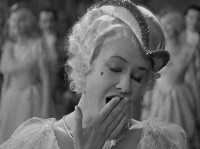 |
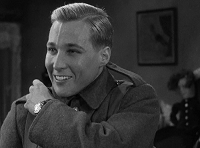 |
 |
| Myra Mae Clarke |
Roy Douglass Montgomery |
Directed by James Whale |
Proof That It’s Pre-Code
- Prostitutes! Plenty of them, all morally conflicted about their place in the world. Oh, and some scantily clad backstage antics for good measure.
- As per the ever perceptive IMDB keywords, “Nipples Visible Through Clothing.”
Waterloo Bridge: The Bridge to Nowhere
There is one type of Pre-Code movie that frustrates me more than any other: the boring kind. I’ve spent a lot of time proselytizing to people about the wonder and excitements of the movies of the early 1930’s, and running into a snoozefest is simply frustration. If this is someone’s first experience with Pre-Code, God help them.
I’m going to lay a lot of that at the feet of James Whale, a director who gets great performances out of his actors but in many of his films can’t manage a staging that frees the movie from its own artificiality.
Artificiality is an issue with Waterloo Bridge, which is based on a stage play which lets the staginess hang heavy over the rather tired conventions it trots out. The good natured prostitute with a heart of gold meets a dumb young soldier and the clock is ticking to see which one will win the mantle of “Most Tragically Poignant Death.”
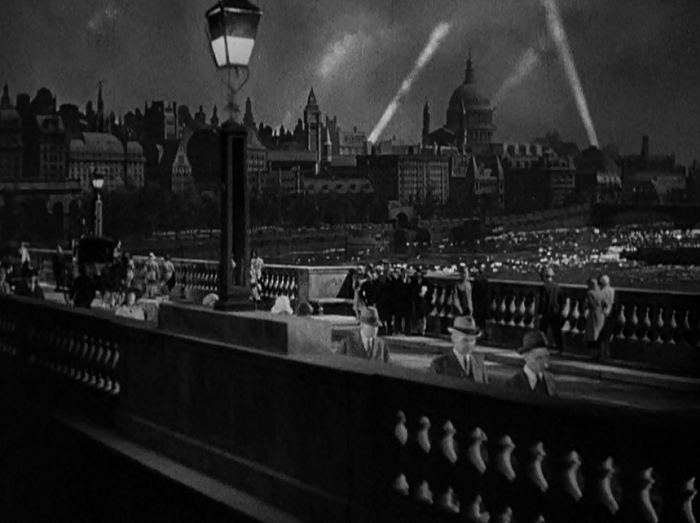
The titular bridge, hard at work.
The story is of Myra, who we open on as a chorus girl in a stage show. She’s happy, but can barely contain a yawn as the audience’s applause rages on. She goes backstage (with all of the Pre-Code skin that entails) and leaves the theater with her beau, a higher up in the army.
Suddenly it’s two years later as we see that the sign on the front of the theater has changed. Myra watches as a wealthy woman enters the play and looks wistful at the place that held her disdain so recently. She grips on to her worn out mink and heads towards Waterloo Bridge to see if she can pick up a John from the disembarking soldiers returning from The Great War.
An air raid is sounded instead (those German zeppelins abound), and she and a soldier help an old woman with a bundle of potatoes make her way off the bridge. They discover that they’re both Americans, and, as the raid ends, Myra invites the cute and sweet young buck, Roy, back to her place. He accedes, but doesn’t realize why she’s doing it.
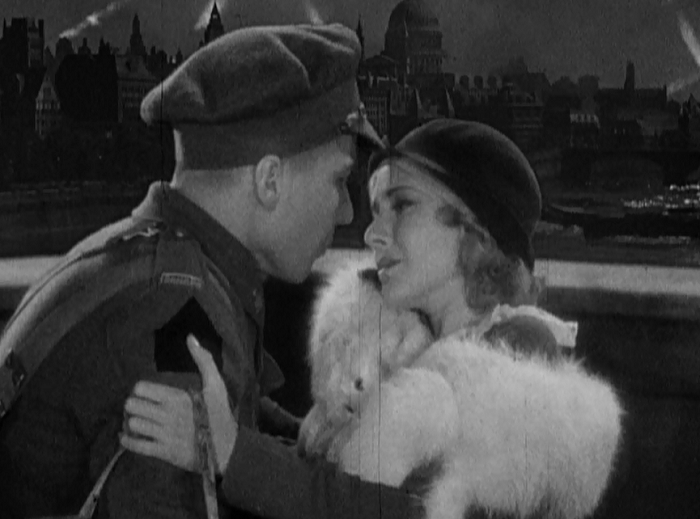
A bridge to romance!
When there, they both probe each other, and it’s revealed that Roy is a rich young scion who fights the war because it’s the right thing to do. He’s so impossibly handsome and wonderful that he doesn’t even realize what Myra’s current and obvious career aspirations entail.
Thus a game of pursuit ensues, as she dodges his advances and comes to find his naivete unbelievably charming and sad. He keeps pursuing her, tricking her into visiting his family’s estate on the outskirts of London and showering her with affection. She resists out of social impropriety, feeling that he certainly deserves much better than her.
And so Waterloo Bridge comments on the rich and the poor, nobility and hopelessness. Myra’s bleak assessment of her life, and her constant struggles against her own desires, make for a telling look at how the poorest of the English got tossed under the machines of war like so much trash.
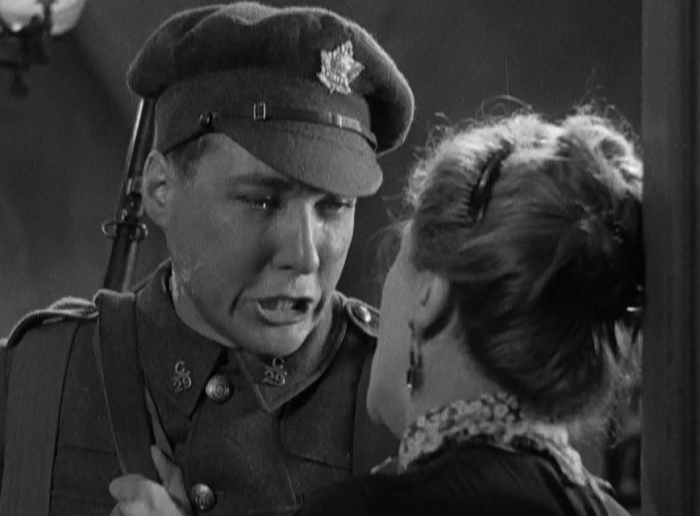
“She’s not a prostitute! Nah huh! I want my mommy!”
The real tragedy in all of this is how undeniably excellent Mae Clarke is in the main role. It’s rare to see a character so torn by desire and strained nobility, and her every mannerism and guarded smile is just that of a person so broken by the system that they’re mortally terrified at the chance of bringing another person to their level.
I think if she wasn’t stuck in such a cockamammy story– or hell, maybe if she wasn’t stuck with someone as flatly dull as Roy to push against– the movie could have been stronger. Roy, for his end of the bargain, spends most of the movie clumsily carrying around his rifle and constantly losing or mishandling it; we get it, James, he’s not so good with his penis.
The silliness of things like this are counterbalanced by Whale giving Clarke a lot of maneuvering room. After she expels Roy for the first time, we get to watch her primping in preparation of another night on the street. In one long continuous shot, we watch Myra decorate herself with a bevy of unassailable self loathing, almost enough to make the audience wince.
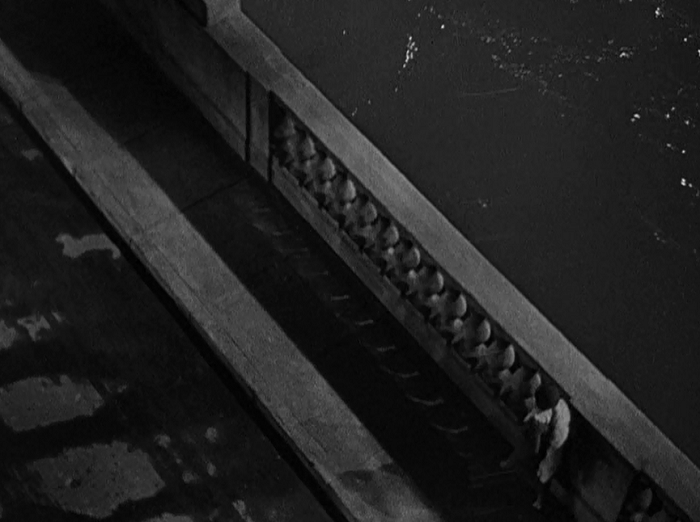
Insert Jaws theme.
I’m going to briefly touch on the end, so if you want to stay unspoiled, please skip down to the ‘Trivia’ section.
The ending may be my biggest problem of the film. Yes, it’s a tragic romance and someone is going to die. But the manner in which Myra is killed– almost comically with a long shot chasing her down from above– comes across less like a natural dramatist decision and more like a final ‘fuck you’ to the audience.
She’s finally accepted love, and promised to marry Roy. The reason she’s finally killed off can only be for one of two reasons:
1) She doesn’t really deserve Roy’s love, so she must be punished.
2) Social stratas are so heavily encased in England that even this film’s narrative must bend to their whims.
The latter is less appalling since it’s at least commenting about how horrible the dichotomy between the rich and poor really is, and is backed up by the only remaining piece of Myra’s corpse left behind: her mink. But that could just as well indicate that the rest of her didn’t deserve Roy just as much as it suggests that only the proletariat survives.
No, I think the first point may have been why the story ends the way it does. It’s cold and sad, and makes all of the rote drama before it seem even more moot now.
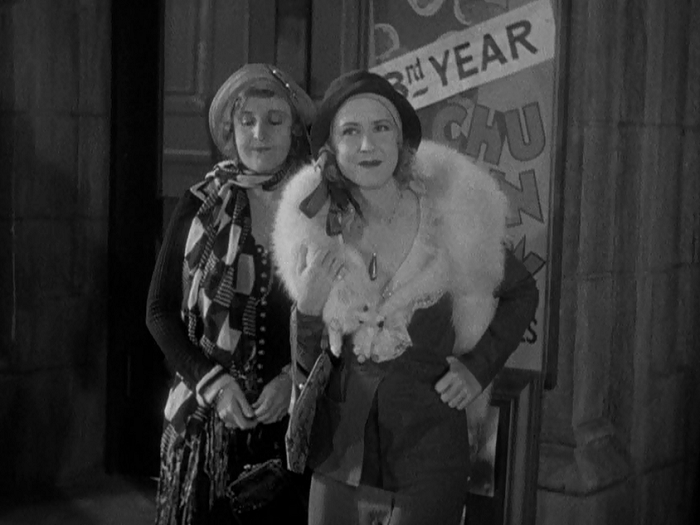
Too good for this film.
Trivia & Links
- A more in-depth discussion of this movie is available in first issue of The Pre-Code Companion. You can also see other available issues and topics covered in the series by clicking here or on the banner below.
- San Francisco Chronicle critic Mick LaSalle loves this film, and apparently ranks a much higher appreciation for Whale than I have.
- If you can read French (which is probably a pretty big ‘if’), this is a nice review over at DVD Classik.
- Mordaunt Hall in his contemporary review in the New York Times actually goes full tactical realism on this one and complains about how the air raids weren’t wholly historically accurate. Geesh.
- This film was remade in 1940 with Vivian Leigh in the Mae Clarke role. Mick LaSalle uses a compare/contrast between the two movies to define Pre-Code in his book Complicated Women. However, since I don’t have a gun currently pressed to my temple, there’s no way you’re going to get me to sit through a Vivian Leigh movie any time this century and will have to check out the book for more details.
Availability
- This film is part of the first Forbidden Hollywood Collection which is available on Amazon, and can be rented from Classicflix.





14 Comments
shadowsandsatin · January 15, 2013 at 10:30 pm
Danny, I decided to top off a pretty perfect evening with one of your reviews — so glad I chose this one! I actually really like Waterloo Bridge — mainly because of Mae Clarke’s performance — but I loved your review; it had me rolling! Especially the line about the Vivien Leigh version! Great stuff.
Danny · January 16, 2013 at 3:58 pm
Thanks Karen! Yeah, I like Clarke, but I am not a Leigh fan.
Gretchen · April 20, 2013 at 11:26 pm
Watched this 1931 version the other night. What can I say…… Loved it!!
Danny · April 21, 2013 at 10:19 am
Yeah, a lot of people seem to like it. Just wasn’t for me, I’m afraid. Glad you loved it though. 🙂
Emily · September 22, 2013 at 5:58 pm
That’s strange, I’ve heard nothing but good about this movie LOL! I’ve only seen the Leigh version, which I liked, but then again, Leigh is one of my favorite actresses. Still, I’d like to see this one, just for comparisons sake. In my experience, films remade from pre-codes usually cannot top the original (the only exception that comes to mind is The Maltese Falcon).
Danny · September 22, 2013 at 7:29 pm
From what I can tell, I’m very much in the minority on this one. But I think it drags, and that ending is a downer for no discernible reason.
Michael I Trager · December 28, 2013 at 6:01 am
I can’t figure out why Mae Clarke never became a big Hollywood star. She had the looks, and the talent and the grapefruit scene in Public Enemy should have sealed the deal for her.
Danny · December 28, 2013 at 7:20 am
I love Clarke, too, but I think she just got typecast as the tragic femme who the bad stuff happened to and never really escaped it. It’s a shame.
Morgan · August 7, 2014 at 3:33 am
I saw this movie last night on a Forbidden Hollywood DVD that I rented from a local library, and ….. I absolutely loved it despite its obvious low budget quality, a mere $250,000.00 to be exact. I saw it twice in a row in fact as I missed a few things the first time around, like for instance that Myra (Mae Clark) is no longer a chorus girl in any capacity whatsoever and is now making a living as she pleases by advertising her services. I especially liked the fact that she is obviously quite content in the life that she has chosen to lead, she is by no means a suffering sort of soul, or one who has let life get the better of her as is definitely the case with her somewhat seedy female neighbor, and the unrequited love of a very young naïve soldier who has become totally smitten over her upsets the social world that she has decidedly set for herself. So it was particularly sad that after he begs her to marry her, and she finally acquiesces- at least for the moment – that she should meet such a quick and tragic end. The only unrealistic part for me was that a hot looking dame like Myra would have little difficulty pulling tricks and paying her weekly rent, but then again people in her kind of trade can be awfully irresponsible.
Supposedly this movie, which was adapted from a play by Robert Sherwood, was based on a true character that he met of an American chorus girl living in London during WWI who had become a lady for hire. Wonder what ever happened to the real life Myra!
I have been very lucky lately, as I recently saw another movie from the pre-code Hollywood era called Lady For A Day (originally called Madame La Gimp) that was directed by Frank Capra, which I also felt was simply excellent. But that movie, being a Capra movie, has a slightly more upbeat ending for the poor old downtrodden woman who is the star of the film. So keep that one on your list if you’ve never seen it, for unlike Waterloo Bride, it was nominated for several academy awards. And maybe my good luck will continue on, as its well worth the time to see some very forgettable flicks in order to see a lost gem like this one. I give it five stars, and that’s enough said I think!
Danny · August 7, 2014 at 12:09 pm
Oh, I love Lady for a Day, that one’s great. Here’s my review if you were looking for it.
And thanks for your nice comment. While I’m certainly in the minority in disliking Waterloo, I’m more than happy to read as praise as well meaning and well written as yours. Thanks for coming by!
Myra Reid · August 24, 2015 at 4:11 am
We just saw “Waterloo Bridge” on TCM. I’d never seen it before and I must admit it nearly had me in tears! I thought it was wonderful, especially when Myra told Roy’s mother she could marry him if she wanted to. I never felt so sorry for anyone on screen. I’m buying the box set from TCM just so I can watch it again. I can see what your saying about it, but maybe I’m just too soft hearted to see anything but a classic. Thanks for letting me speak my piece
Danny · September 1, 2015 at 5:55 am
I honestly like the movie a bit more every time I watch it. Thanks for sharing your thoughts.
Jonathan · September 10, 2016 at 6:11 pm
My two favorite things in this film:
1. Major Weatherby and his longwinded tangents about Old Plumstead and whatnot. This character is basically my dad.
2. How the puppyish Roy is so completely unbelievable as a romantic lead that it’s actually endearing once you get over the hilarity of it.
And yeah, the ending is awful. It just feels like a cheap twist with no thought behind it.
Dave Campbell · June 23, 2020 at 8:07 pm
I admire your personally definitive reviews, and your ability to pick up on other criticisms and deal with them equitably. It’s interesting that not one of the threads mentions the appearance of Miss Bette Davis in an almost invisible appearance as the hero’s rather blank-slate sister–it must have taken every bit of Bette’s skill to allow herself to fade completely from the picture except for a line every now and then. It’s Mae’s picture all the way, and the gangly doofus that wants to marry her will never have more than a clue of what he has avoided.
Comments are closed.